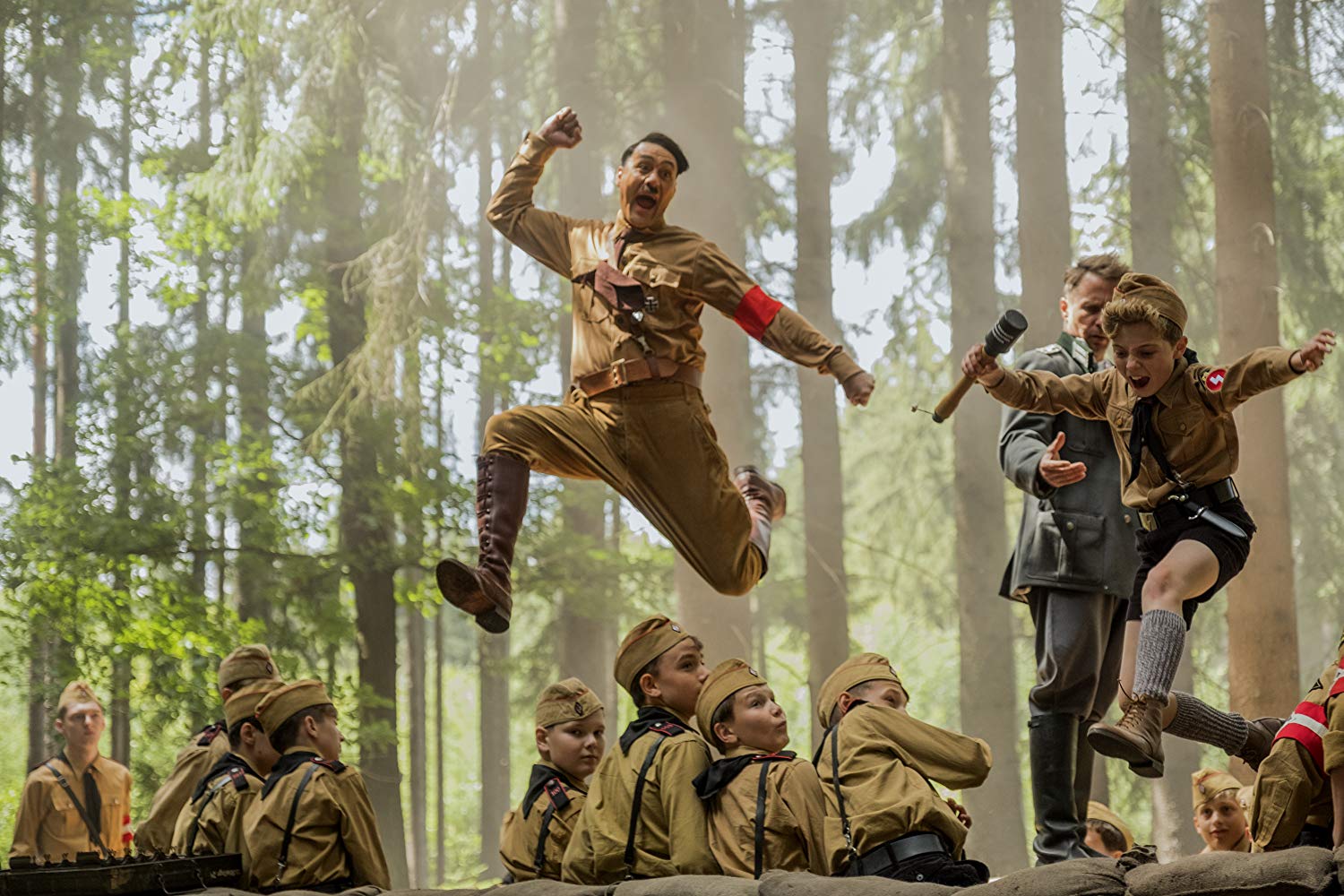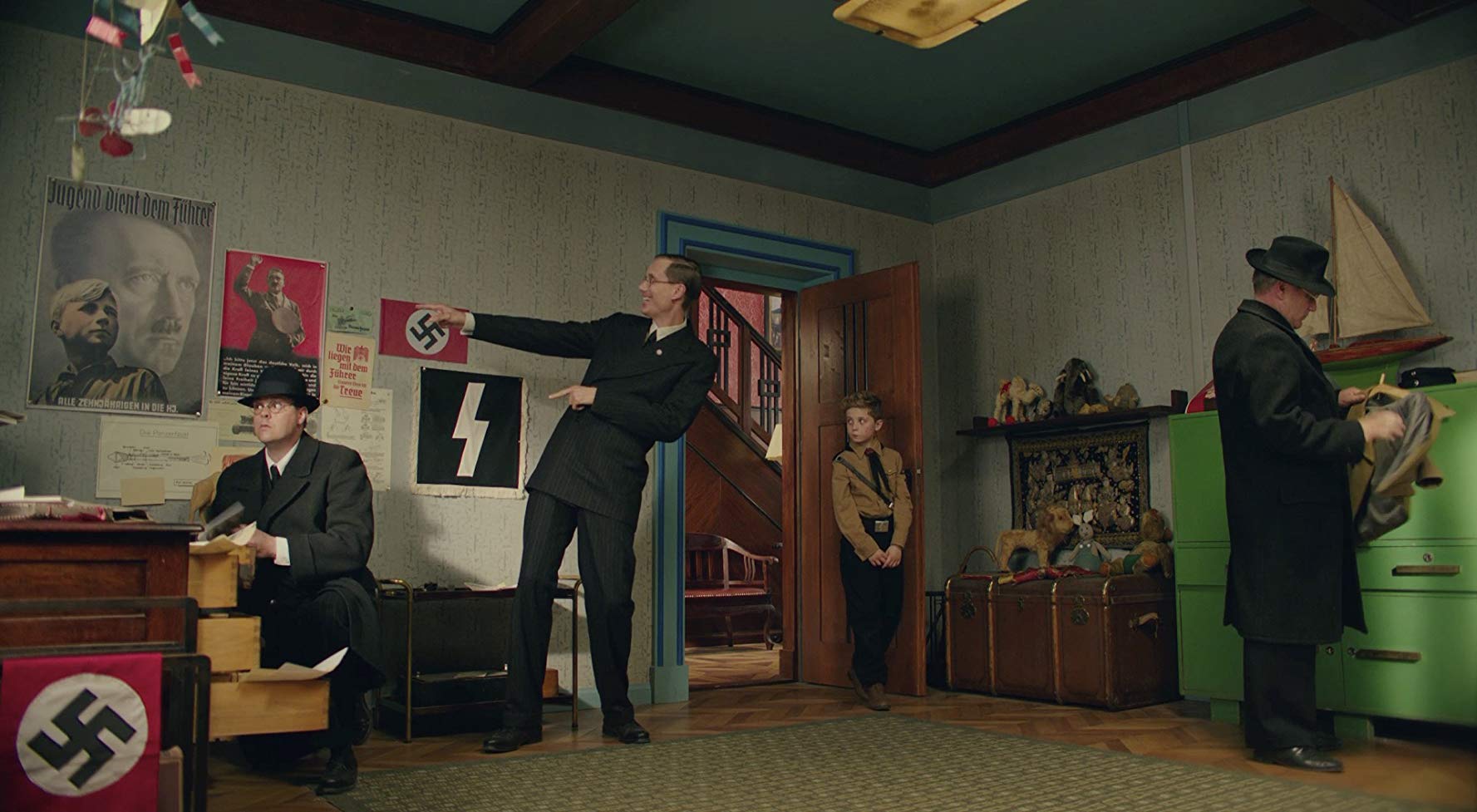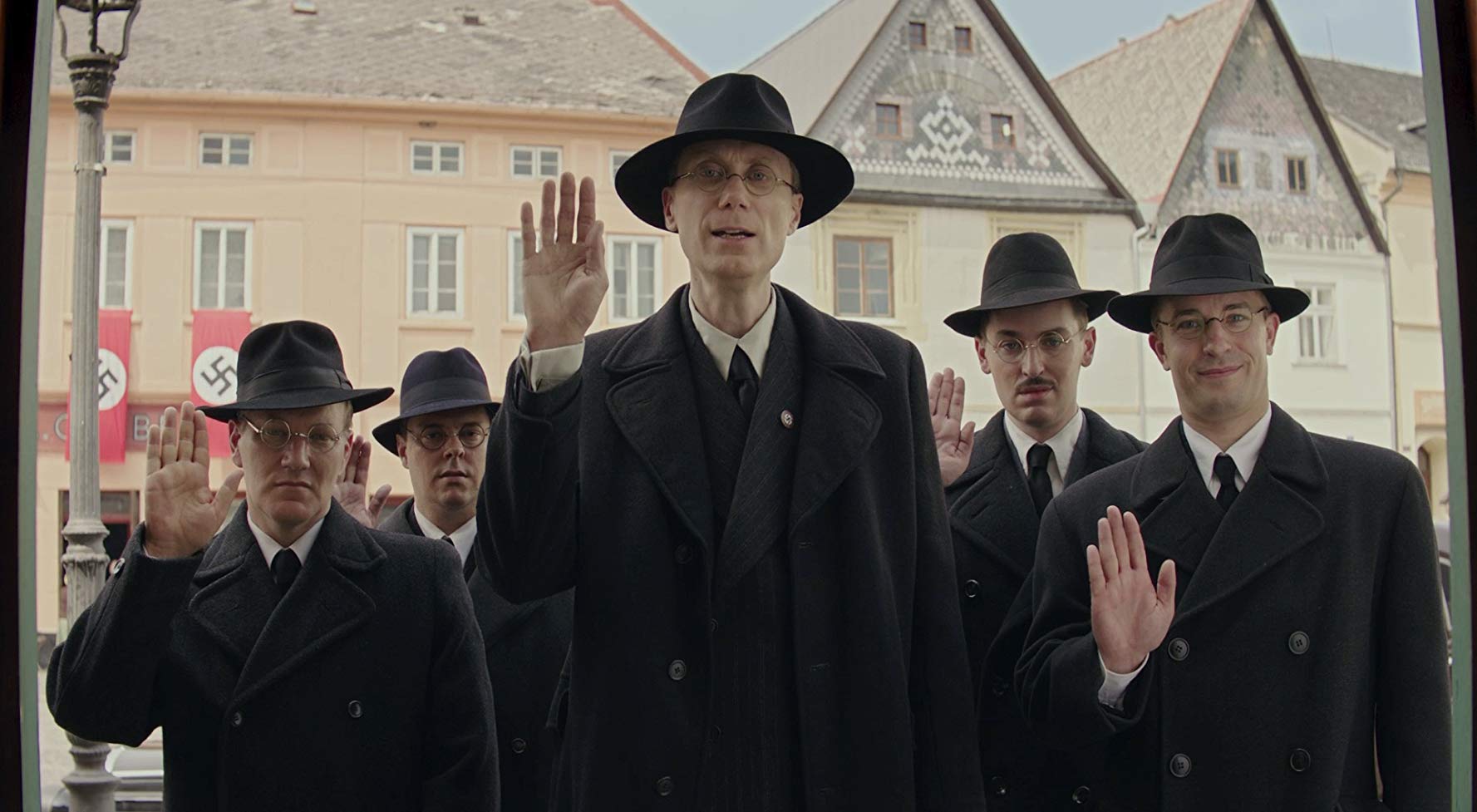By Guy Atoun, Second Year, Law
Many filmmakers today aim to explore the Holocaust, as well as other historical tragedies, in different ways that may be unexpected to general audience. A recent example of this is Taika Waititi’s Jojo Rabbit (2019).
The film centres on a young German boy, ‘Jojo’ Betzler, (Roman Griffin Davis) who adheres to the Nazi regime. His obsession with Adolf Hitler results in the creation of an imaginary, more fanciful version of him (Waititi). This situation generates conflict once Jojo finds out that that his mother (Scarlett Johansson) is hiding a Jewish girl, Elsa (Thomasin McKenzie), in their attic. Despite the nature of this historical event, the film is presented as a comedy whereby Hitler’s character is often intended to provide comic relief.

To simply dismiss this film as an offensive picture that has no other intentions but to ridicule the atrocities committed in WWII is, in my mind, quite extreme. As someone who is a fan of Waititi’s other works - especially What We Do In The Shadows (2014) - I am familiar with his fairly crude sense of humour. He is certainly a filmmaker whose intentions never seem to normalise dark subject matters, but to simply point out their absurdities.
He is no stranger to humourizing subjects such as paedophilia cleverly in films like Hunt For The Wilderpeople (2016) so it is no surprise that he decided to tackle the Holocaust as his next project. This film is a further example of Waititi’s comedic style, as the jokes are often made at the expense of the Nazis, as Waititi finds amusement in hyperbolising the ridiculousness of the Nazi regime and the way in which many German children were essentially brain-washed to despise Jewish people. This film is not first in exploring this genocide more lightly, with another notable example being It’s A Beautiful Life (1998).
Sometimes comedy is a more powerful tool than empathy in helping us achieve a further connection to the topic and the people involved
Despite my issue with many Holocaust focused features who do nothing more than dramatize the events which took place at the time, I am not opposed to filmmakers deciding to take a more humorous approach in exploring this topic. I stress the importance of remembering the tragic nature of the Holocaust by avoiding needless complications in narratives simply as a way to attract the further attention of the viewers and keep them entertained.

Nonetheless, to view a historical event in a restrictive manner will not be beneficial overall, as filmmakers must be granted flexibility in exercising their visions and personal perspectives. Furthermore, allowing variety in the portrayal of specific subject-matters such as this often enhances our understanding of these topics by looking at it from different perspectives.
Sometimes comedy is a more powerful tool than empathy in helping us achieve a further connection to the topic and the people involved. Still, this must entail complexity in the narrative and the film overall which, in my mind, is not present here as Jojo Rabbit fails to deliver an effective comedic piece that cleverly satirises the events of WWII.
| Jojo Rabbit is a rip-roaring comedy we shouldn’t love, but do
The sense of humour is mostly restricted to the mockery of the Nazis regimes’ methods. Although this certainly isn’t troublesome today, the jokes themselves become stale very quickly as they often rely on silliness to be impactful - a feature that tends to deteriorate in its effectiveness in the long run.
Moreover, we see the film from a perspective of a young German boy who adores Hitler, thus once he confronts a Jewish girl, the comedic moments arise from his exaggerated perception of the Jewish people. Once you realise what this film’s comedic intentions are, everything becomes very predictable as the jokes’ punchlines seldom differ from one another, especially with the character of Hitler in this film.
Say what you will about Jojo Rabbit (I really liked it, I can understand why others didn’t, I can see the issues with it) but the people just absolutely refusing to acknowledge that Taika Waititi could *possibly* be Jewish is a bit suspect to me
— Mara “Get Rid of the Nazis” Wilson (@MaraWilson) November 2, 2019
Another area I discussed in the past was the necessity of tackling the German experience during WW2 in film. My concerns are the possibility of us understanding Nazi characters and potentially empathising with them, especially when these characters are fictitious. The decision to explore the perspective of a German child at the time is slightly more challenging as children tend to be more easily persuaded into accepting immoral standards set by the hierarchical ruler than adults.
To simply dismiss this film as an offensive picture that has no other intentions but to ridicule the atrocities committed in WWII is, in my mind, quite extreme
The addition of Hitler as an imaginary friend does intensify Jojo’s personal battle with the regime once he befriends Elsa. However, the story itself becomes something that we’ve seen many times before as the main character’s arc consists of the realisation that his views in the beginning of the film were morally inconsiderate, resulting in a new friendship.
The message of the film is certainly something that is important, but is it really achieving anything new by delivering it in the context of the Holocaust? The simplicity in this conclusion may be logical from the perspective of a child. However, I highly doubt that any child in that position would come to accept everything that is occurring around him so easily. In fact, the film reaches a certain point where Jojo comes to terms with a personal tragedy very quickly, clearly being a necessity to further the fictitious plot.

I do not think that Waititi exploited the Holocaust for the purpose of creating a dark comedy. However, this film fails to deliver a comedic feature that effectively confronts the viewer’s perception of this time period. I understand that this film does not seek to be anything more than just a silly comedy.
| Has the Holocaust been normalised in modern cinema?
Regardless, if filmmakers do decide to explore the Holocaust in a comedic way or through the viewpoint of Germans at the time, I think they should do more than simply point out the preposterous nature of the latter’s views and poke fun of it. Such films must still challenge viewers in some way by examining the immorality portrayed at the time, therefore delivering an experience that is more likely to challenge the audience’s personal views and potential predispositions of the historical event.
Featured: IMDb / Fox Searchlight
Where do you stand on Jojo Rabbit's use of the Holocaust as a vehicle for its comedic purpose?








